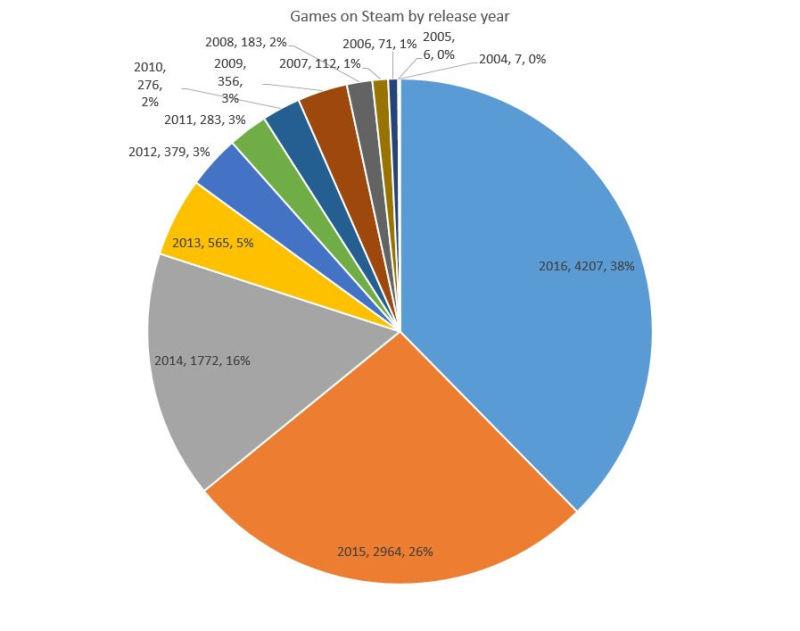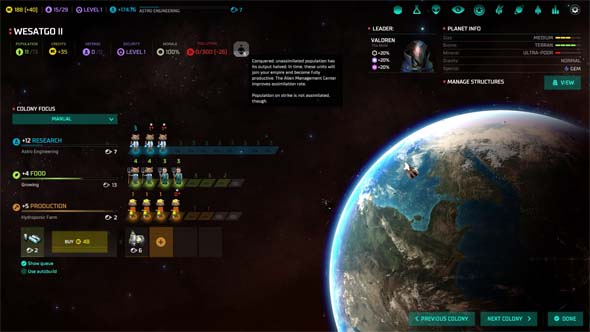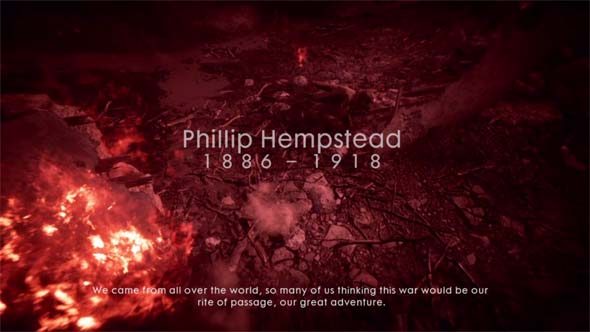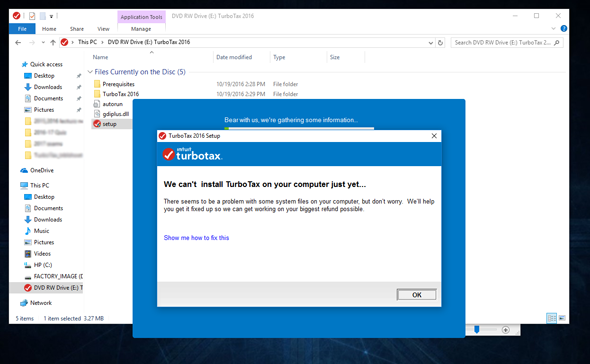
The video game developer and distribution platform-owner Valve has announced that it will no longer moderate game submissions to Steam, and will instead "allow everything", so long as it is not blatantly illegal or "straight up trolling". This comes after literal years of complaints from players about the poor quality of games being submitted on the platform, and years of failed attempts by Valve to shut down or limit such releases. Apparently, they are just giving up.
Valve executive Erik Johnson made this announcement on an official blog post today, in which he defended the change in policy as a matter of protecting free speech rights.
"If you’re a developer of offensive games, this isn’t us siding with you against all the people you’re offending. There will be people throughout the Steam community who hate your games, and hope you fail to find an audience, and there will be people here at Valve who feel exactly the same way. However, offending someone shouldn’t take away your game’s voice. We believe you should be able to express yourself like everyone else, and to find others who want to play your game. But that’s it."
-- Erik Johnson, Valve executive, official blog
I'm a huge proponent of free speech, and a firm opponent of censorship, but I'm not sure if this move from Valve is the right one. For me, this is less an issue of free speech and censorship, and more an issue of quality control. Steam is already inundated with crappy, barely-working games that are phishing for people's money. People have been submitting, and charging consumers for, blatant asset-flips, Unity tutorials, copy-pasted rip-offs and clones, achievement farms, and all sorts of other low-quality, minimum-effort games and "fake games". In essence, Valve is enabling illigitimate developers to sell defective merchandise to the public, and Valve is directly profiting off of those sales. Does this represent a conflict of interest? Is Valve under a perverse incentive to facilitate the sale of as much crap as it possibly can?
That doesn't even include larger indie debacles like Life of Black Tiger, which actually saw a release on PSN as well! It also doesn't include the vast array of Early Access titles that may or may not at some point be released as "complete", fully-functional titles.
Yes, it is nice that indie developers (especially budding young ones) have a platform on which to publish their work. However, the flood of games on the platform is not necessarily good for the consumer. Even if all the games that were submitted to Steam were quality games submitted by honest developers in good faith, the shear volume of games would already make it difficult to weed through to find what you are looking for.

Almost half of all games ever released on Steam were released in a single year.
Source: Steam Spy.
Instead of doing their own moderation or quality-control, Valve apparently intends to release a suite of controls intended to allow end users to filter out content that they don't want to see... [More]
397aecb2-8914-4766-aae9-7a6fe2b8fd6b|1|5.0
Tags:Steam, Valve, censorship, free speech, indie gaming, PC, Poe's Law, toxic fandom, political correctness, Abstractism, cryptocurrency, malware

The 2016 reboot of Master of Orion kind of shoots itself in the foot a bit with its own subtitle: "Conquer the Stars". When I play 4x games, I like to feel like I'm really building an empire, managing an economy, and conducting diplomacy. All of those things are present in Master of Orion, but I've gotten a pretty distinct feeling that this is yet another strategy game that falls victim to military rushing being the optimal strategy by far. Master of Orion doesn't really want you to build a civilization and colonize the galaxy; it firmly wants you to do what its subtitle tells you: conquer the stars.
Master of Orion III was kind of shit (it was boring, ugly, and completely lacked personality and substance), but at least it made some effort to be new and interesting. Most noticeably, the galactic map was actually three-dimensional. Sure, this was a navigational and UI nightmare for the human player, but it required players to think differently about how they approached expansion and warfare. At a more fundamental level, MoO3 sought to be a game about macro-management, asking the player to manage a vast galactic empire rather than just a collection of a dozen or so planets. The meat of the game, thus, was intended to be in the mid-to-late stages, as developed empires engaged in epic battles for survival, rather than all the fun and challenge being front-loaded in the early rush to colonize all the nearby planets. It didn't work, but at least it was trying to genuinely innovate the 4x genre.
The new Master of Orion isn't anywhere near that ambitious, and seeks instead to simply bring the original Master of Orion concept (in its simplest form) into the age of high-resolution 3-d graphics. It's a scaled-down, bog-standard space-4x game that borrows heavily from Endless Space and Civilization V. But it is at least a competent one!
Conquer the Stars isn't as big, complex, or ambitious as Master of Orion 3, but at least it's competent.
The galaxy itself isn't very big this time around. Depending on the map's size, there's only a few dozen stars, and most of them only have two or three planets. Unstable star lanes and space monsters can lock you out of exploring certain systems until you research certain technologies or grow your military sufficiently large (respectively). Other than that, exploration is over fairly quickly (especially once you start performing map trades in diplomacy).
Planet-management is also fairly easy. You can assign population meeples between one of three different types of output: food, production, and research. Meeples of different jobs and races have different icons, and unhappy meeples on strike have icons that sit down holding a picket sign. It makes it very easy to see what your population's current status is at a glance. There's just not really much to do with them. You don't have to assign them to work specific buildings, and with only 3 outputs to manage, balancing or specializing isn't that difficult.
All the buildings in the game are also one-time builds that don't serve much function other than to provide flat points of one of the three outputs, or to modify the efficiency of meeples in a particular output category. Buildings that have unique functionality (such as the Spy Center, Gravity Generators, or Interplanetary Administration) are few and far between. The only other thing that you do with your planets is to occasionally terraform them in order to boost your max population and unlock additional slots along each of the output tracks.

Each point of population is of a specific race, which affects the morale of conquered planets.
The tech tree also feels kind of bland and linear. I would much prefer a tech web along the lines of Civilization: Beyond Earth. Master of Orion kind of goes in this direction a bit by including some techs in which you have to chose which of two different items you want to take when you research certain techs. You can then trade for the other via diplomacy if you want to. It's kind of like the leaf nodes in Beyond Earth, but only some techs have them, and I rarely had to think too hard about which one I wanted... [More]
b529f082-d6e2-4759-8316-2633e3e77143|0|.0
Tags:Master of Orion, Master of Orion: Conquer the Stars, NGD Studios, Wargaming Labs, Steam, strategy, grand strategy, 4x, turn-based strategy, PC, science fiction, space, exploration, expansion, exploitation, extermination, colony, war, Michael Dorn, John de Lancie, Mark Hamill, Alan Tudyk, Nolan North, meeple, Master of Orion 3

Some of the suggestions from my first wishlist have actually been implemented in Cities: Skylines. Naming roads, and adding directional traffic overlays were recently added in the Mass Transit expansion, and the previous Snowfall expansion incorporated some of my ideas for seasonal cycles (minus the part where the seasons actually cycle from one to another). There's still a lot of items from that wishlist that haven't been implemented. I also have come up with some new ideas for things I'd like to see in further expansions (or maybe a sequel?).
Taking the best ideas from its competitors
Even though Cities: Skylines is, by far, my favorite (and probably the objective best) city-building / city-simulation game of the past decade, there are still some features and ideas from the inferior games that I really like. In my first wishlist, I already talked about how much I liked the modular building mechanic of SimCity (2013).
I won't go into too much detail of why I liked that concept (even though the actual implementation was a little weak) because I invite you to read the original post. Suffice it to say, I liked the idea of certain pieces of city infrastructure (such as power plants, schools, universities, police stations, airports, government buildings, etc.) actually growing along with the city. Being able to upgrade an existing building to add additional functionality, additional capacity, or to specialize it in some way, was (in my opinion) a much more interesting and engaging process than simply plopping another copy of the same building every so often, or adjusting a global budget slider, simply to meet increasing demand.

I still think SimCity had the right idea with its modular buildings.
In that first wishlist, I also briefly mentioned the Cities XL series. There isn't much in XL (or XXL) that is done as well (or better) than what is offered in either SimCity (2013) or Cities: Skylines, but I did neglect one idea that I think was probably the most clever, interesting, and fun part of the XL series of games: the ability to "fill" an area with "decoration". Put simply, Cities XL allows the player to fill any unoccupied area of the map (that is at least partially enclosed by roads) with one of several different types of decorative landscaping.
Landscaping options include a grassy park area with trees, an open-air "flea market" with kiosks and street vendors, various plazas / courtyards, and even a makeshift construction site. These decorations aren't functionally different (the flea market doesn't produce any commerce or jobs, for example), but each decorative area applies a very small environmental beautification effect that increases happiness and land value for adjacent homes or businesses.
Decorative areas in Cities XL allows you to fill-in irregular shapes with city-beautification projects.
From a more aesthetic standpoint, Cities XL's decorative areas allow the player to make very efficient use of space, to fill any empty dead space, and to create your own custom parks and plazas that conform to whatever shapes the outlining roads happen to be. Want a park in the middle of a large roundabout? Want a plaza space at the point of a 45-degree (or narrower) intersection? XL allows you to do such things without having to go into an asset-editor to make a custom ploppable.
Despite having muuuuuch better tools for creating curved and angled roads, Skylines doesn't really have any equivalent to these decorative features from XL that allow us to fill-in gaps left by our pretty, rounded or angled roads... [More]
61f9c85f-04f1-43df-ada3-cf727a4682d8|0|.0
Tags:Cities: Skylines, Cities: Skylines: After Dark, Cities: Skylines: Snowfall, Cities: Skylines: Natural Disasters, Cities: Skylines: Mass Transit, match day, Paradox Interactive, Colossal Order Ltd., PC, SimCity, CitiesXL, CitiesXXL, city simulation, park, decoration, parking, natural wonder, national park, beach, ski resort, tourism, leisure, history

Nobody can make a game about World War I. Trench warfare is too boring. Nothing really happens. There isn't a strong, identifiable villain or good versus evil struggle.
Those are among the many excuses that people made for why all the video games are about World War II, and never about World War I. And then the gaming public and journalists got a glimpse of this:
The teaser trailer for Battlefield 1 was a smash hit.
That teaser trailer was damn good. People were excited. I haven't played a first-person shooter since Call of Duty: World at War, I generally hate online shooters, but even I was excited to try out this game! And other people were hyped about it too.
Now, I never really bought into the idea that World War I was "not video game material". I've long advocated for games to look at all periods of history for inspiration, and World War I is a monumental moment in world history that certainly deserves to be examined by games. The indie market certainly realized this, with games like Valiant Hearts and Verdun. But the big publishers have completely shied away from "The War to End All Wars".
This is a shame. The rapid technological advancements and radically new military tactics that evolved leading up to (and during) the war could be great material to examine in the form of a game. The widescale industrialization of warfare, the complicated politics, and the general fuzziness of the morality of the war are also ripe source material for dramatic storytelling. So it's about time to see this war thrust into the mass market spotlight.
I'd prefer to have seen a strategy game along the lines of Total War; but whatever, I'll give DICE and Battlefield 1 a chance.
UPDATE: 12 MARCH 2018, Better than I gave it credit for:
After having played Activision's Call of Duty: WWII and (especially) EA's Star Wars:
Battlefront II, and having talked about it with friends, I have gained a bit of respect for the successes that Battlefield 1 has been able to accomplish. I've started to like it more in retrospect. Not enough to go back and re-play it or try out any of the expansions (yet), but I do feel that I may have been a bit too harsh on the game in retrospect, especially with regard to its campaign vignettes.
I'm not going to change my original review score, but compared to CoD:WWII and Battlefront II, this game probably deserves a slightly higher grade. So keep that in mind as you read the following review. Of all the big-budget first person shooters that I've played in the past couple years, Battlefield 1
is probably the one that I most enjoyed, and it's the one that I would recommend.
The futile indifference of war
First impressions were actually pretty damned good. I was actually really impressed with Battlefield 1's campaign tutorial. It's basically a guided tour of the game's various core mechanics: shooting at enemy soldiers, capturing victory points, piloting vehicles, and so forth. It does a good job of introducing each of these mechanics and systems by jumping the player around between multiple characters in a large-scale battle.
But what really stuck out to me was how the tutorial transitioned between these different set pieces, and how it handled player death. This tutorial is actually surprisingly merciless and difficult. As you complete one set piece, the game gradually (and subtly) increases the threat until it becomes overwhelming and your character dies (or they just kill you after a timer expires), which allows the game to teleport you to the point of view of another character for the next set piece. The dying character's name and birth / death years are shown on screen during the transition, granting that character with a certain degree of humanization.

The excellent tutorial emphasizes the indifference and futility of "The War to End All Wars".
Depending on how good you are at the game, you'll go through between half a dozen to a dozen different characters, each with a name and an age. And they all die. The tutorial makes this war look brutal and futile. It even has an almost Dark Souls-like indifference to the player character, killing you without a second thought and forcing you to respawn as another poor, dumb bastard who's about to die for his country, rather than restarting you at a checkpoint until you get it right.
I even wish DICE had gone a bit further by also displaying the character's birth place and maybe even a snippet or two of other biographical trivia. Maybe listing some hobbies, or saying that he was on his high school's varsity football team, or some other little detail like that. DICE settled for just the name and birth / death year, but it's still effective and establishes a very strong running theme throughout the tutorial. The point is a bit undercut by the rapid pacing and by how conventional the actual running and shooting feels. But I still walked out of this tutorial excited by what the rest of the campaign had to offer. [More]
1b3222c5-df25-48fc-8292-199702831456|1|5.0
Tags:Battlefield 1, Battlefield, EA, Electronic Arts, DICE, PC, mouse & keyboard, EA Origin, shooter, online, multiplayer, World War I, war, history, trench warfare, chemical weapon, Harlem Hellfighters, tank, biplane, horse, England, France, Germany, Ottoman Empire, Europe, Argonne Forest, Arabia, Laurence of Arabia, eBay
It's tax season, which is not something that I ever write about on this blog. But this year, I had a very irregular experience. It wasn't with my taxes; rather, it was with my dad's attempts to use this year's TurboTax software. He'd been using TurboTax for years with no problem, but this year, the program wouldn't install. He's not exactly tech-savvy, so he had to call me to help him troubleshoot.

TurboTax fails to install due to some unspecified issue with the .NET Framework.
Upon attempting to install the program, he gets a very un-descriptive error message that simply states there was a problem installing TurboTax. Then a dialogue pops up stating that TurboTax is attempting to fix the problem by checking the file system, registry, and .Net framework. It's the .Net Framework step where TurboTax fails with yet another very un-specific error.
We tried updating Windows, disabling anti-virus software, and even opened up the registry to make sure that all the requisite versions of .Net Framework were installed. No luck.

Unable to resolve the problem itself, TurboTax referred us to a troubleshooting web page.
TurboTax referred us to this troubleshooting page, which includes instructions for downloading and running various .Net Framework repair tools and other system file integrity tools. In my dad's case, none of this stuff worked. As a last resort, the troubleshooting guide referred me to a blog post by Microsoft developer Aaron Stebner, who wrote about a .Net Framework cleanup tool that could potentially be used to resolve the issue... [More]
90a849db-87db-4a02-a5e5-9c7105a6911c|3|5.0
Tags:Intuit, TurboTax, Microsoft, Windows, Windows 7, Windows 10, .Net Framework, PC, taxes, troubleshooting, customer support, Aaron Stebner
|

| 12 | | | | | | | 60 | | 11 | | | | | | | 55 | | 10 | | | | | | | 50 | | 09 | | | | | | | 45 | | 08 | | | | | | | 40 | | 07 | | | | | | | 35 | | 06 | | | | | | | 30 | | 05 | | | | | | | 25 | | 04 | | | | | | | 20 | | 03 | | | | | | | 15 | | 02 | | | | | | | 10 | | 01 | | | | | | | 05 |
|